- Home
- Alice Hoffman
Property Of, the Drowning Season, Fortune's Daughter, and At Risk Page 7
Property Of, the Drowning Season, Fortune's Daughter, and At Risk Read online
Page 7
McKay only smiled. We walked through the wooden doors of the chapel, and as the doors swung out behind us, and then clattered, we entered the overheated warmth of the room where the weeping of family and friends of the Pack blanketed the air.
The room was alive with the odor of wreaths, the smell of saltwater, with the whispered chants of remembering. In the front row, before the casket, sat the family of the Pack. A young woman in a heavy black veil, who must have been Ralphie’s sister, wailed and rocked back and forth in her chair. Behind her a row of the Property of the Pack—a row of girls in tears, mascara in thin wet lines upon their faces. The men of Ralphie’s family and the boys of the Pack sat in brown metal chairs around the altar where the coffin lay.
McKay and I walked toward the coffin. As we moved down the aisle toward the altar I could hear McKay’s and the Orphans’ names whispered, and the word “murderer.”
“Darling, you are my charm,” whispered McKay. “You make me seem even more respectable than I already am.” He smiled and increased the pressure of his hand upon mine. But I barely heard McKay’s words, words that I would have memorized at another time. I could hear only the whispers, see only the coffin before us.
I had no previous acquaintance with dead bodies, with coffins, with curses and prayers. What did I know of the look of someone without life? I was afraid to walk farther, but McKay held my arm tighter, and I followed.
We knelt beside the coffin, and I crossed myself as McKay did, but I kept my eyes closed.
McKay whispered, “Honey, just don’t look, is all.” But my eyelids wouldn’t listen to his words and I looked. It was just a boy, young and seeming more alive than anyone else in that chapel of death. He smiled. His eyes were closed and he smiled. I thought I saw his chest move.
“Maybe he’s alive,” I said to McKay.
“Not a chance,” whispered McKay. “He ain’t gonna get up and dance no more.”
I wanted to touch the boy in the casket. I wouldn’t have wanted to when he was alive, but now I wanted to reach out and touch him. His face. To touch him and see if he would move, could turn his smile into a laugh.
I was busy concentrating on the face, and McKay was staring straight ahead into the air. Neither of us heard someone come up behind us as we knelt.
“Murderer,” she cried, and lifted the veil from her face. “Do you know what he is?” the sister cried out to the room. “A gangster. A murderer.” The sister pounded a fist against her heart.
From the corner of my eye I could make out the row where the Property of the Pack were sitting. Not one of them moved. Only stares and the slow movement of their tears.
“You come and desecrate what’s holy,” said the sister. “You, you murderer, dare to kneel at my brother’s coffin. You dare to come here and bring some tramp with you to kneel before what’s holy. I know what you are,” she cried.
Now I found I could not unkneel, and as McKay stood I could not look up at him. I could only stare at the boy’s frozen smile. The curses of the sister fell like hailstones; I could no longer distinguish one word from another.
McKay stood. “I am here to honor him, not to curse him,” he said quietly to the sister of the dead boy I could not stop staring at, because he was so young. I could not believe he had ever been one of the Pack. I could not believe that he had ever worn the Pack’s emblem of the head of a wolf in colors of turquoise and gold upon his back. Or that he had laughed, had howled on that Night of the Wolf.
“Oh God, you’re making me sick,” cried the sister. “You being here in the same room is making me sick.”
“Death”—McKay spoke the word so low that I could barely hear—“is only a mystery.”
“There’s no fucking mystery to a knife in the ribs,” cried the sister. “And you can’t make it be, even if you want to.”
“I am here only to honor that which was your brother,” said McKay.
“Murderer,” said the sister, and threw herself at McKay. I moved closer to the coffin, edging toward the safety of the wood.
Kid Harris and his soldiers walked down the aisle. The room was alive with curses and wailing and the sound of heavy shoes on the wooden floor. Now the priest, whom I had not seen before, held the figure of an old woman in black so that she would not fall. McKay stared into the air as the sister of the dead Pack boy beat her fists against his chest and wailed the word “murderer” again and again so that I could not get her voice out of my ears. McKay did not move, did not protect himself from her fury, and I could do nothing to get him away to the safety of the Avenue, to the safety of some familiar place. I could not move.
“Leave it be. Leave it be, now,” Kid Harris said to the sister, holding her off from McKay. Untouched on the Night of the Wolf, McKay now bore a line of crimson on his right cheek, beneath his eye, a gash left by the fingernails of this woman, the sister.
Now I stood up. No one noticed me and I did not feel afraid. I walked to McKay and stood beside him, and waited for him to turn. But he did not; he continued to stare into the air. Then he said, “She can’t understand.” And Kid Harris laughed in that room of whispers.
“Get out,” he said to McKay. “You’ve done what you had to do. Now leave. I ain’t expecting to see you again until the night when the Orphans and the Pack meet again, and on the Pack’s terms.”
The priest approached, his black skirts rustling about him. “You are aggravating the family, son,” he whispered to McKay.
“That’s right,” said Kid Harris. “You are aggravating the family, you are aggravating everyone. So get out. Get the fuck out.”
“Sons,” the priest began to whisper once more, but McKay had already turned, Kid Harris was leading the sister to the row where the family sat, and the men around the coffin were lifting the wooden box, carrying the boy and the wood and the silence into the Avenue, where the black limousines waited.
“They can’t understand,” said McKay. I took his hand and we walked down the aisle. McKay hesitated, again staring at nothing; so I pulled at his hand to lead him away from the altar, the priest, the whispers.
“It wasn’t anything personal,” said McKay.
I laughed. “Everything is personal,” I said.
“No,” said McKay. “No. Death and honor are not personal.”
We passed the row of Pack Property and one of the girls, I did not see which, spat at the floor where I stood. I walked on, but now held my back straighter and walked closer to McKay.
When we stood once more in the street, McKay said, “They don’t know.” I believed that I did know the reason McKay attended the wake: not to gloat, and never for pity, only because he could not walk down the Avenue with the same step if he had not knelt before the coffin.
We walked toward the Chevy. “I could drive,” I said, knowing that those words would bring McKay back to me.
“Not a chance,” McKay said, and he smiled.
In the Chevy I sat close to McKay. I felt that if I let him get too far away, even for a minute, I would lose him. I wanted to get rid of the black dress, of the magic charm in my pocket, anything that might cast a spell.
“What’s dead is dead, and then it’s not,” said McKay.
“Get lost,” I said, and turned up the volume of the radio.
McKay kissed me. “That’s what I like to hear.” He smiled.
I could not smile; I was listening to McKay. What’s dead is dead. And what’s dead is not dead. At the altar, by the coffin, they could not see that McKay did know something. I listened to McKay now. For me, it was only love. But not for McKay. What he wanted was honor. And I was beginning to know that there simply was no such thing.
FOUR
PROPERTY OF
1
We drove down the Avenue, away from death. Finally McKay stopped the Chevy across the street from a Texaco station.
“You may get to drive this car yet,” said McKay. “Can you drive a stick shift?”
Who but the Dolphin had ever been known to
drive McKay’s Chevy? Not one other Orphan would McKay trust with the silver-studded mag wheels, with the custom-made wood-and-chrome steering wheel. Now he was asking if I knew how to drive. There was no one on the Avenue who would not jump at a chance to drive the Chevy. As McKay opened the Chevy door, I slid over to the driver’s seat and placed my fingers on the wood of the steering wheel.
“I’m leaving the engine running,” said McKay through the half-open window. “You just wait here and don’t touch anything. When you see me walking to you, you put the car in gear. When I open the passenger door, you step on the gas.” I nodded, and looked at the waiting speedometer. “I want you to know,” McKay continued, “that this is a nothing job. Don’t get any ideas that I’m gonna ever involve you in any jobs that are important. Don’t get any ideas just because you drive the Chevy once.”
So this was the job he mentioned to the Dolphin. The heist. Nothing big, nothing fancy; only a small heist to chase away some of the shadows cast by the Christian Brothers Funeral Home.
I watched McKay walk away to stand on the corner across from the station. With the engine straining and the radio playing softly, it was just another wait for McKay. The time passed with cigarettes and songs. Finally the gas station attendant went into the men’s room and then McKay was walking back to me. His easy pace had not altered, but McKay kept his hands in his pockets and his eyes on the cement. I wrenched the car into gear; reverse, wrong—back into first.
McKay threw open the passenger door. “Drive to the station,” he said.
I stepped on the gas and steered the Chevy into a quick U-turn without the use of the brake. I left rubber on the Avenue as I pulled the Chevy into the gas station driveway and alongside the row of gas pumps.
“Easy,” said McKay. I nodded as he jumped from the car.
I was not calm, but my excitement had nothing to do with the heist. Of this illegal act I had no fear. But the power of the Chevy’s engine had gotten to me. I felt I had never driven before.
McKay began quickly loading large boxes into the back seat of the Chevy. Then, in seconds, he had carried a large wooden barrel from the waiting room of the station. I was calm now. I admired McKay’s quick movements, and I smiled as I looked into my own dark eyes in the rearview mirror.
In minutes, McKay had completely looted the station. Just in time, for as McKay finished loading the Chevy and threw himself into the front seat, the station attendant opened the door of the men’s room and stood not a hundred yards away from us. My eyes focused not upon the station attendant’s face, but upon the name “Al” scrawled in gold across the breast pocket of his Texaco shirt.
“Hit it,” said McKay, and I floored the Chevy. In the rearview mirror I could see Al chasing us. McKay was holding the door open; he had not had time to close it fully. He turned and watched Al chasing us, then he grabbed my shoulder.
“Get down,” he said. For a few seconds I could not see, though I kept my foot on the gas, so that the pedal touched the floor.
We were already turning a corner when I heard a gun firing. I had no fear—it was too late for Al. The Texaco station had already been looted: we had the barrels, the boxes, the money was in McKay’s pockets, and the wind of the Avenue was whistling over the roof of our getaway car. McKay slammed his door shut and locked it. There was no catching us now.
“Get your foot off the gas,” said McKay. I didn’t listen to him. I wanted to drive the Chevy now that I had the chance. “You heard me,” said McKay. “Off.”
McKay moved next to me, grabbed the wheel, and turned it so sharply that we skidded to the curb. I had no choice; I stepped on the brake.
“Thanks,” said McKay. “Now I know the shocks are fucked.”
“This car,” I said. “How did you get this car so fast?”
“I know it, I know the shocks are totally fucked over.”
“This car can fly.”
“Yeah? Fly somebody else’s car. Didn’t anyone ever tell you to use the brake when you took a corner?”
He motioned me with a nod of his head, and I climbed over his knees so that he could take control of the Chevy. Although I lingered as I moved over McKay, he drew away from me, and took out the stolen bills and began to count.
“How much?” I said.
“What do you care?”
“My share,” I said. “How much?”
“Get off my case,” said McKay. “There is no your share.”
“Fifty-fifty,” I told him.
McKay paused in his addition, stopping the rustle of money.
“Eighty-twenty,” he said.
“I’ll take it,” I said.
My share came to not quite twenty-five dollars. McKay did not smile as he counted off the bills and placed them in my hand. But this was no joke, and I hadn’t expected a smile. And although the percentage was off in our partnership—it was still a partnership of sorts, even though I settled for less than I wanted.
We were silent. McKay didn’t like my driving and he didn’t like my bargaining. If I moved closer to him, he would only turn away. So I stayed in my corner of the front seat and said, “At least you can let me buy you a drink.” McKay nodded, and pulled the car back out into the traffic of the Avenue.
The Tin Angel Bar was Orphans’ territory. Never before had I ordered a beer or a whiskey at its polished counter. The color TV screen was tinted a bluish color by the smoke which lay heavy in the air and the jukebox sounded loudly.
“If you’re buying, partner,” said McKay, “I’ll have whiskey and water. A double, partner, since you is so wealthy.”
I ordered, and watched McKay walk past the barstools to a booth where Starry and Kind sat. If Starry neither trusted nor liked Kind, she certainly was an excellent politician, a terrific actress, for they talked and gestured and laughed, and greeted McKay with smiles. I followed McKay, holding the whiskey and a rum and Coke, feeling the cold of the glasses in my hands. I sat on the bench near Kind, across from McKay.
McKay held his arm around Starry’s shoulders. She covered her smile with her hand and nodded a greeting to me.
“Gotta get this damn tooth fixed,” Starry said.
“You’re still beautiful,” said McKay.
Kind’s painted eyes were cold as she watched them.
“You’re still full of crap,” said Starry.
“Now how can you say that to the man?” said Kind, and her eyes smiled at McKay.
Did I have to sit and listen to this? Did I really? I stood; the glasses rattled on the tabletop.
“Sit down,” said McKay.
I sat. McKay’s dark eyes were upon me, and I knew that although I had stood, there was nowhere I wanted to go.
“Hey,” Starry said to me, as I began to sip rum and Coke, “you know that Kid Harris will be after you for the trouble you caused him. You and me both.”
“What are you telling her that for?” said McKay. “You’re losing faith in the Orphans and you’re scaring my girl, all because you lost one fucking tooth? That ain’t like you, Starry.”
“Boy,” said Starry, “I could never lose faith in you or in the Orphans. I’m just stating the truth. And I ain’t worried none about scaring her.” Starry winked at me. “Seems to me,” she said to McKay, “that she don’t scare easy.” Starry nodded and raised her glass of tequila in my direction. “You don’t scare easy,” she said, and she smiled.
Kind had been tapping her long painted fingernails upon the tabletop; she was letting us know she was bored.
“McKay,” she said, wrapping a curl of fox-colored hair around her finger, “when you gonna give me another ride in that Chevy of yours?”
McKay smiled. Starry rolled her eyes, and I ignored them all and studied the ice that floated like a sinking ship within my glass.
“Because,” Kind continued, “I sure could use a ride right now.”
“I’ll bet you could,” said Starry.
“I gotta get to work now, don’t I?” said Kind. And she aimed her paint
ed eyes at McKay.
“Go ahead,” I said to McKay as I watched the ice, “give her a ride.”
“That’s so sweet,” said Kind, “you giving him permission.”
“It won’t be long,” McKay said to me as he stood.
“Take your time,” I said.
“I will,” said McKay. He nodded to Kind. “You’re damn right. I’ll take my time.”
I stood to let Kind pass by. Then I sat down again and did not bother to watch them walk out the door.
“Told you,” said Starry. “I told you about her.”
“He’s only giving her a ride,” I said.
“If that’s what you want to call it.”
I didn’t want her pity, but I could stand another drink. I ordered one for myself and another tequila for Starry. She offered me a cigarette, and as we smoked and drank in silence I studied her thin face in the blue-tinted light of the bar. Her golden hoop earrings made soft sounds as she moved her head in time to the jukebox music. I could see by the shaking of her hands that although it was not yet dark, this was certainly not just her second drink.
We were silent for some time. Starry kept her attention on the doorway of the Tin Angel. Whoever she was waiting for didn’t enter the bar. Finally she said, “Can I trust you?”
“If you want.”
“But can I trust you not to talk to McKay?”
“Now, does it look like I’m gonna be talking to McKay soon again?”
“You will,” said Starry, and she held the glass of tequila so tightly it seemed impossible that the glass would not break. “He screws Kind, that’s all. You can’t expect him to drop her all of a sudden, can you?”
I certainly could.
“McKay screws everyone,” Starry said softly.
Again we were silent; again Starry watched the door.
“Some things,” she continued, “I’d rather McKay not know. Some things I don’t want the Orphans or the Property to know. Of course the Dolphin, well, now he’s something else again. The Dolphin knows everything. You can’t hide nothing from the Dolphin. But you,” Starry said, “until you prove me wrong, I’m gonna trust you.”

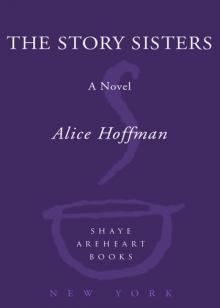 The Story Sisters
The Story Sisters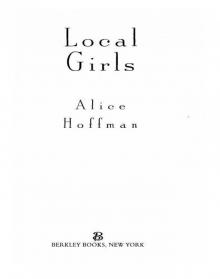 Local Girls
Local Girls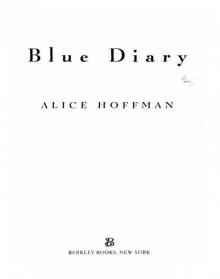 Blue Diary
Blue Diary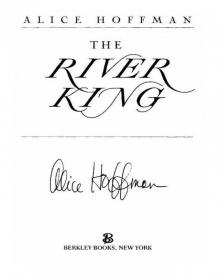 The River King
The River King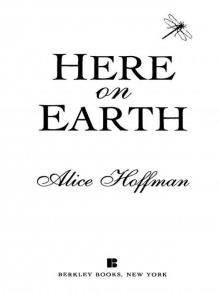 Here on Earth
Here on Earth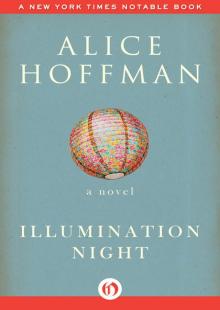 Illumination Night: A Novel
Illumination Night: A Novel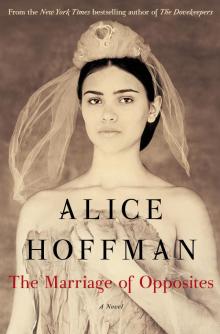 The Marriage of Opposites
The Marriage of Opposites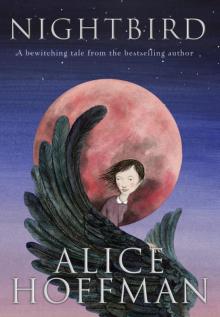 Nightbird
Nightbird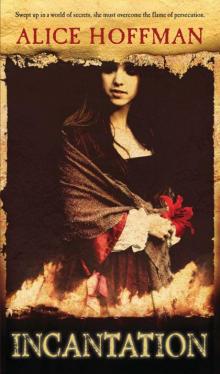 Incantation
Incantation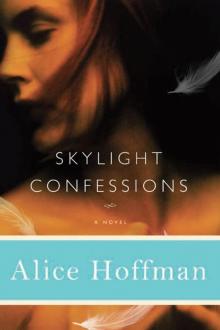 Skylight Confessions
Skylight Confessions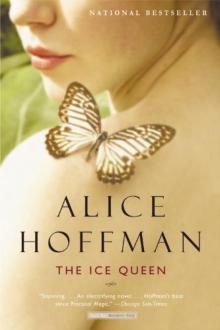 The Ice Queen
The Ice Queen Second Nature
Second Nature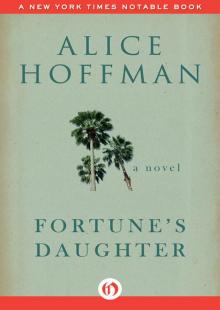 Fortune's Daughter: A Novel
Fortune's Daughter: A Novel Seventh Heaven
Seventh Heaven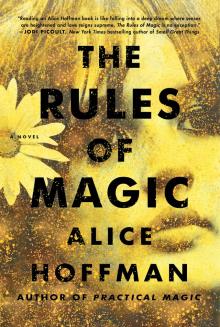 The Rules of Magic
The Rules of Magic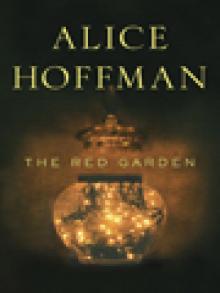 The Red Garden
The Red Garden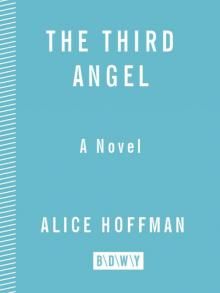 The Third Angel
The Third Angel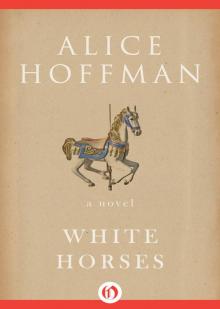 White Horses
White Horses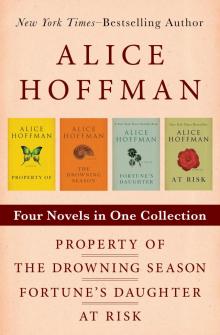 Property of / the Drowning Season / Fortune's Daughter / at Risk
Property of / the Drowning Season / Fortune's Daughter / at Risk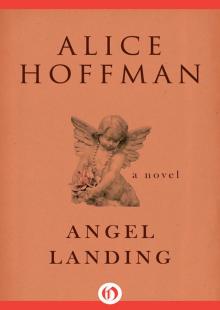 Angel Landing
Angel Landing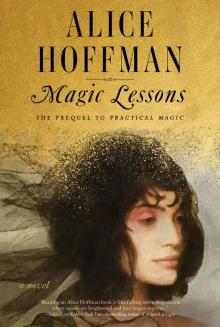 Magic Lessons
Magic Lessons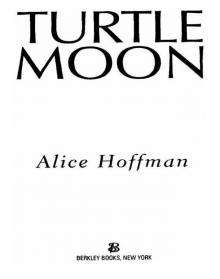 Turtle Moon
Turtle Moon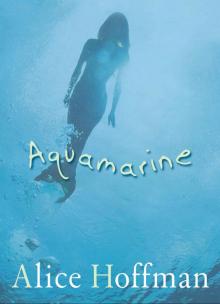 Aquamarine
Aquamarine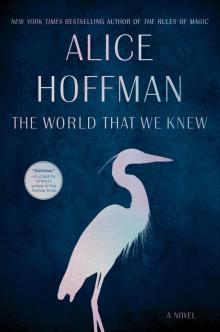 The World That We Knew
The World That We Knew Faithful
Faithful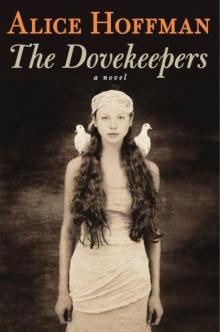 The Dovekeepers
The Dovekeepers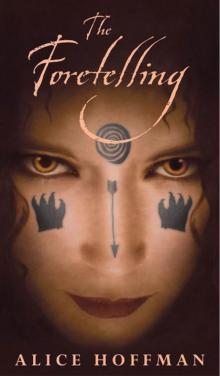 The Foretelling
The Foretelling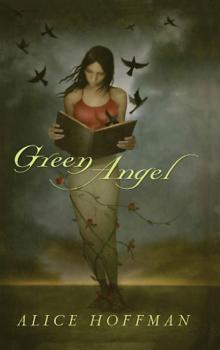 Green Angel
Green Angel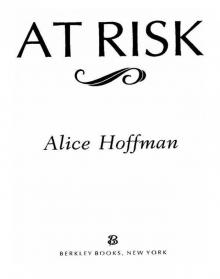 At Risk
At Risk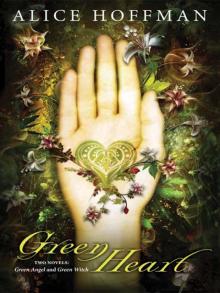 Green Heart
Green Heart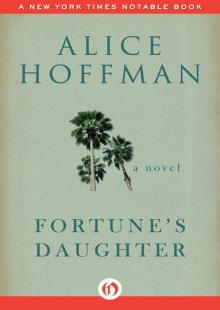 Fortune's Daughter
Fortune's Daughter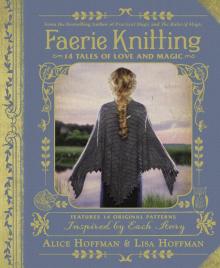 Faerie Knitting
Faerie Knitting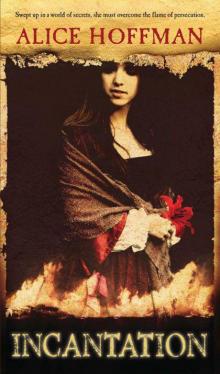 Incantation (v5)
Incantation (v5)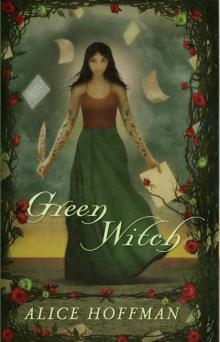 Green Witch
Green Witch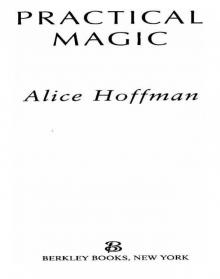 Practical Magic
Practical Magic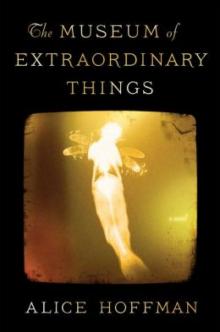 The Museum of Extraordinary Things
The Museum of Extraordinary Things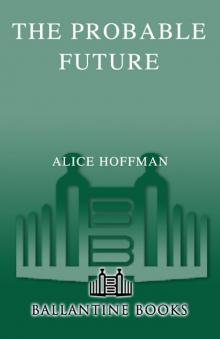 The Probable Future
The Probable Future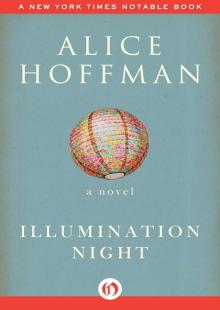 Illumination Night
Illumination Night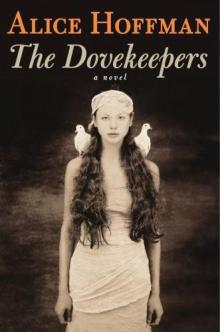 The Dovekeepers: A Novel
The Dovekeepers: A Novel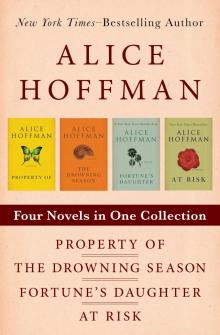 Property Of, the Drowning Season, Fortune's Daughter, and At Risk
Property Of, the Drowning Season, Fortune's Daughter, and At Risk